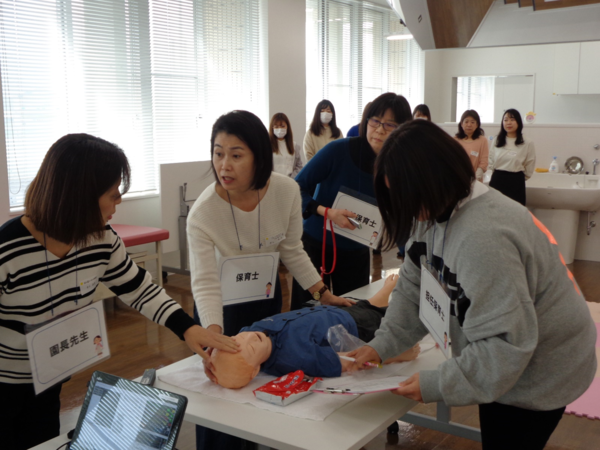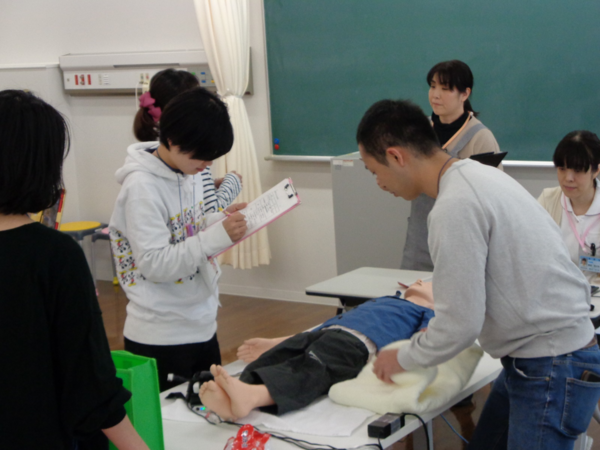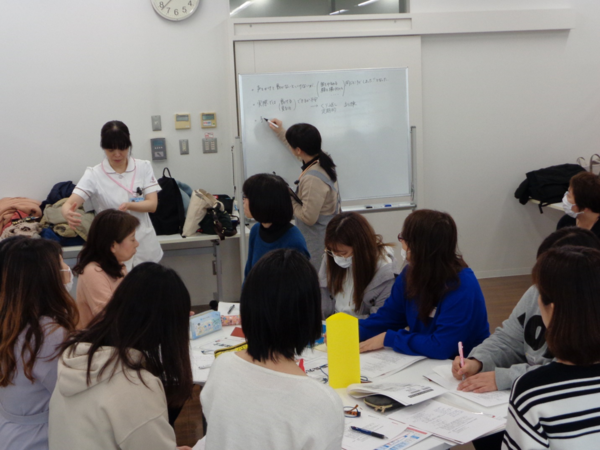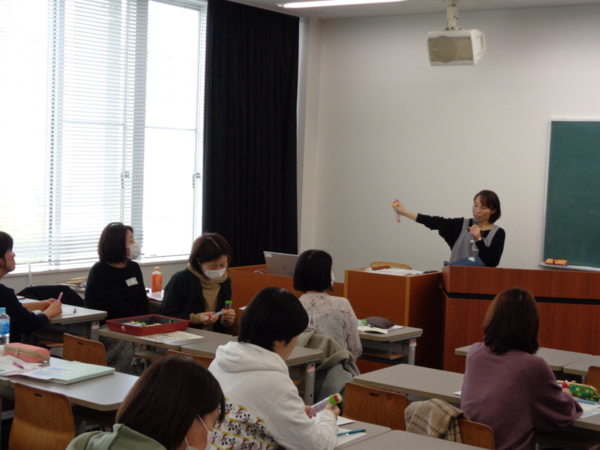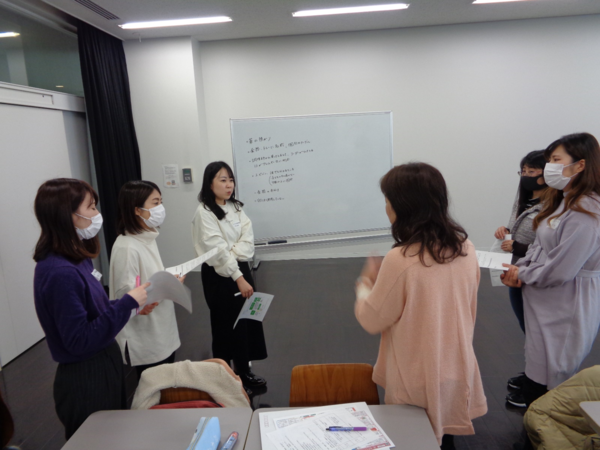News
No.1 Research on Child Rearing Support Programs in the Community
Team Leader:Shinichiro Nagamitsu (Professor of Faculty of Medicine)
The third Fukuoka City Health and Safety Workshop (review session) was held on Saturday, February 15, 2020. This workshop was designed to enhance participants' confidence in dealing with emergencies by repeating the simulation training to handle children's convulsions, which was conducted in the previous workshop (training session) in December of last year. There were 40 participants in this workshop, including nursery teachers, nurses, and managers.
We asked them how they had shared their last experiences with colleagues at their own facilities. Most of them answered that they "presented the results at a teachers' meeting" or "wrote a workshop report and circulated it." On the other hand, a participant commented that she "introduced the method in the training program at my school" and "developed emergency tool kits and checked how they worked." We were encouraged to learn that the results of the workshop were put to use at some of their facilities.
In an exercise to deal with children's convulsions, a simulation was conducted using the same situation as the one in the previous training session. This was the second training for the participants and they were making meaningful contributions through the active exchange of opinions among themselves. "I was able to review my skills with the simulation training. Repeated practice has boosted my confidence to the point where I can deal with emergencies" and "I want to introduce the simulation training for emergencies at my school. I think we need to review how to benefit from the manual, which explains actions to be taken for anyone in an easy-to-understand manner" were some of the comments we received.
From the handling of convulsions, the program evolved into the response to anaphylaxis triggered by food allergies. There was no simulation training, but the participants informed each other about the ways their respective facilities deal with the allergic reaction and practiced using the EpiPen®. Their comments included: "It was a good opportunity for me to participate in the role-play activity and practice EpiPen® injection techniques, which I don't usually have time to do" and "We don't have any children with allergies at our school right now, but the workshop reminded me of the importance of advance preparation because we won't be able to deal with anaphylaxis if we aren't ready."
Members of Team 1 compiled original DVDs for the workshop, titled "How to deal with convulsions" and "How to respond to anaphylactic shock," which were very well received by the participants. A few comments and requests were made regarding them, including: "After watching the DVD, I could clearly picture how to respond to emergencies" and "The content was well-planned and informative. I tried once to introduce the simulation training at my facility, but it was very hard to teach everything by myself. It will be very nice if I can borrow the DVD used in today's workshop."
At school, there is little chance for the participants to experience a child-related emergency situation, but once it happens, it requires quick judgment and a calm response. We believe that, throughout the workshop, they kept reminding themselves of the importance of always sharing common understanding as caregivers, developing a system for potential collaboration, and training regularly.

